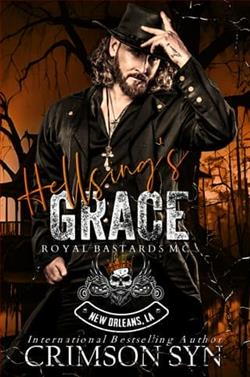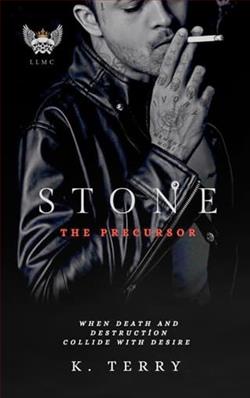Page 34 of Code Name: Reaper
I slid the omelet onto a plate and set it in front of her, along with the bread I’d sliced.
“It’s like the photo, ya know? The one of her and Jekyll in high school. I mean, what the fuck?” She picked up the fork and took a bite, lost in thought. “They looked happy. Young. Like they were normal teenagers instead of future intelligence operatives with false identities and classified agendas.” She paused and took a second bite. “It makes me wonder what they experienced together. What connected them before they ever entered this world?”
I made my own plate and sat across from her, noting how color started returning to her cheeks as she ate. “Could be acoincidence. Intelligence work attracts certain personality types. Maybe they were drawn to the same things from an early age.”
“You don’t believe that any more than I do.” She took another forkful, larger this time. “Two people from the same high school both end up on deep cover missions, investigating the same corruption network? That’s not mere coincidence.”
I shrugged. “Maybe not.”
I watched her eat with more attention than the simple act warranted, relief flooding through me as she finished most of what I’d prepared. While the food seemed to revive her, weariness still clung to her.
“Secrets and lies. That’s what our world operates on. No one tells the fucking truth; information is passed in dark alleys, and then when it’s shared, no one can know who told them.” She rested her chin on her hand. “I don’t know who to trust anymore.” The admission came out raw and honest. “Mercury was my mentor for years, and I know nothing about her. Aldrich founded an organization to fight corruption, but she’s collaborating with the people she’s supposed to be fighting. Who else isn’t who they say they are? Or worse, who I think they are.”
For the second time, I wanted to pull her into my arms and find the words to tell her that, if no one else, she could trust me. Instead, I feared it was me she was referring to.
“You act on your instincts. They’ve kept you alive this long.”
“Maybe they have, or maybe it’s been dumb luck. My instincts told me I could trust ‘Dr. Henning.’”
“They also told you Prism was dirty prior to having any proof. You’ve been right about the big things.”
She looked up at me then, and I saw the moment her walls came down a fraction.
“Whatever it is, say it,” I practically begged.
She studied me for a long moment, and when I decided she wasn’t going to tell me, she uttered two simple words—“Your source.”
That told me all I needed to know. As I suspected, it was me she was afraid she couldn’t trust, even with the leaps of faith she’d already made.
My immediate decision went against everything I’d learned in the course of my career. “Killian Curran,” I said. “Code name, Dagger. That’s my source.”
Her eyes widened, not at the name but at my willingness to share it. In our world, assets were sacred. You protected them with your life, even from the people closest to you. The fact that I was giving her a name meant I trusted her with more than intel—I trusted her with my integrity.
“He’s not affiliated with the coalition, but his sister, Verity, is,” I continued. “She was on the Swiss task force.” I leaned forward, holding her gaze. “You don’t need me to explain why I didn’t share his identity right away, but I’m going to anyway.”
“You really don’t?—”
“I do.” The words came out rougher than I’d intended. “Dagger is a Unit 23 operative I met through Typhon. What I’m about to tell you, even Nemesis doesn’t know. No one from the coalition does—not Delfino, not Hornet, not anyone.”
She went very still. The fact that I was sharing intel that sensitive meant I was putting her above organizational security. It was a line I’d never crossed with anyone.
“Please don’t feel as though you have to do this,” she practically pleaded.
“But I do,” I repeated. “What no one knows is that Dagger is currently undercover within Minerva Protocol. His cover identity is Tanner Fellowes.”
The weight of what I’d told her settled between us. Dagger wasn’t merely a source—he was an asset embedded in anorganization whose founder we were investigating. If his cover was blown, he could be in grave danger. Less than five hours after he’d read me in on his assignment, I was putting his life in her hands.
“He’s been feeding me intelligence about their internal structure, their decision-making processes, their paranoia about potential security breaches.” I leaned forward, holding her gaze. “He’s walking a tightrope every day. If his cover gets blown, if the wrong person finds out…”
“He’s dead.”
“Exactly.” I pushed my own plate aside when the food became less important than making her understand. “I’m telling you this because I want you to know that whatever other lies get uncovered, whatever other people turn out to be playing multiple sides, you can trust me with your life just like I’m trusting you with his.”
“Why?”
Multiple answers surfaced in my mind—most of which I couldn’t tell her because I wasn’t ready to acknowledge them myself.
“Because you’re the only person I’ve met who fights for people the way I do. Because your instincts are sound, even when you don’t trust them. Because we saved each other’s lives in Berlin and that has to count for something.”















